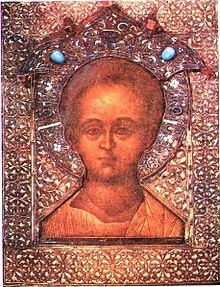For a child has been born to us,
a son has been given to us.
He shoulders responsibility
and is called:
Extraordinary Strategist,
Mighty God,
Everlasting Father,
Prince of Peace.
9:7 His dominion will be vast
and he will bring immeasurable prosperity.
He will rule on David’s throne
and over David’s kingdom,
establishing it and strengthening it
by promoting justice and fairness,
from this time forward and forevermore.
The Lord’s intense devotion to his people will accomplish this. (Isaiah 9:6-7, NET)
Isaiah 9:6 is a favorite passage quoted by Christians just before Christmas, predicting the coming of Messiah. It’s one of my favorites, too. It is difficult for us to look at the passage in its original context, but let’s give it a try.
In the 8th century BCE, Judah was in trouble. Ephraim and Syria were a new threat just to the north and the Assyrian Empire was a terrible juggernaut gobbling up all the surrounding territories. These days, commentators say that Judah was under the “Assyrian Crisis.” The Assyrians were a pretty ruthless people who demonstrated their cruelty in some terrifying ways. Impalement and dismemberment were just a few ways they proved their power to their enemies.
In this cultural and historical setting, Isaiah gave a prophecy of great hope to a people under enormous pressure. A child would be born who would set all things straight. Isaiah’s audience were under Ahaz’s rule, but his actions were less than ideal. But this child would be a king who rules on David’s throne and would bring about a definitive order in the middle of the political chaos.
The birth announcement foretold a human event with divine intention. The child is a human conception, though God has determined its happening and purpose.
He will be one that bears a great weight of responsibility as a political leader, but will be renown for his technique and ability, because he will be called “Extraordinary Strategist” by many. I think the NET Bible communicates this well. Oftentimes we see the popular gloss “Wonderful Counselor” and think that he will be someone that will give great advice or direction in a personal matter. Instead, Isaiah’s audience was more interested in a leader who could get them out of their terrible predicament; someone who could save them from forces like Assyria.
As was common to the ancient Near East, kings were representatives of a nation’s deity. The kings embodied the authority of the gods. They were even considered the very presence of a deity on earth. The title “Mighty God” points to this divine embodiment, but it isn’t an outright incarnation that the New Testament teaches. Instead, a king who accomplished the great things destined for him would obviously be driven by the deity. His authority would be synonymous with the authority of the deity, and so he would represent the divine.
The title “Everlasting Father” really doesn’t have anything to do with deity. Instead, it refers to the fatherly provision and protection of this coming king. A Christian appeal to the Trinity would be problematic here, especially since Christian see the king as the Son and not the Father. The metaphor of a kingly father is also found in Isaiah 22:21 (esp. ESV or NIV). Of course, the duration of his protection will be “everlasting,” which fits the theme of this pericope nicely. This kind of forever language is almost always hyperbolic, not referring to a literal eternity, but is instead a magnanimous description of the coming king. It also fits the language of the promise made in 2 Samuel 7 where God promised David that one from his lineage would establish a kingdom of peace that would endure forever.
He’ll be a “Prince of Peace.” How can a king in that environment establish peace? He’ll be a supreme and unbeatable warrior-king who will force the bad guys into submission and so take care of his people. His concern for his people is clear in verse 7. He’s David’s son, he brings peace and justice to his kingdom, and that kingdom is one of great prosperity. It’s YHWH’s passion that motivates and drives him. He’s the perfect king, truly the Messiah.
Is it any wonder that the first century Jews expected a warrior king that would utterly demolish Rome? It makes a lot of sense when you hear Peter’s revolutionary language and see him charge the crowd who came to arrest Jesus in Gethsemane.
But what do we do with this Isaiah 9 passage this Christmastime? The people who walked with Christ experienced a paradigm shift and interpreted these passages like this one differently and we do it too.
A child was born by human effort and divine intention. This child would set things straight and we would save us from a war going on between all humanity and God himself: this king would save us from our own sins (Matt. 1:21). The king will be not simply be a representative of God, but will be the actual incarnation of God Himself. He will not just be a symbol of God’s presence among us (Isaiah 7), but will actually be God in human flesh. He will be Immanuel in substance, and not just in spirit. His kingdom will expand as the Gospel message moves across the globe. Our reasons for fear–death, sickness, and divine retribution–will fade. In him, we got more than was originally expected. With him we gain victory over the grave and death. Political aggressors are really secondary when it comes to the issues of sin and death; and the latter are the most important things in our lives that the Messiah came to correct. The culmination of all God wants to accomplish on earth are found in the Christ child.
The hopes and fears of all the years are met in thee tonight.



